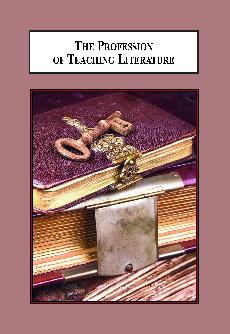THE PROFESSION OF TEACHING LITERATURE A Professor Reflects on the Pedagogical Goals
We are currently unable to ship to the EU countries at this time. We apologize for this inconvenience.

| Author: | Ceia, Carlos | |
| Year: | 2013 | |
| Pages: | 228 | |
| ISBN: | 0-7734-4540-4 978-0-7734-4540-6 | |
| Price: | $179.95 + shipping | |
| (Click the PayPal button to buy) | ||
After a first comprehensive revision of the meaning of professionalism in literary studies today, both at universities and in other places where literature is being taught, written and reviewed, I deal with particular problems that are affecting literary studies today. I look at how they are developed in academic curriculum, how they are being studied and taught in all levels of education, how they copy with the primacy of other core disciplines, and what are its possible futures in the humanities. Main topics include, trends of the literature teacher’s professionalism, the way he or she drills literary taste, the question of standards in literary studies and how they affects professionalism and teaching methods, the place for literary history and the inseparability of language and literature teaching. The true role of the teacher of literature today will be discussed in several ways. I will assume that he or she involves an anti-essentialist method of teaching, opens to a kind of canon formation that is flexible and adjustable to the public’s interest, understands the literary traditions relating to other forms of knowledge such as natural law, and uses the power of literary reading against external resistance to the benefits and usefulness of literature.
Reviews
“The professional teaching of literature qua literature, at least in the West and Americas, has fallen on hard times. The book in hand takes a hard look at the situation in schools and universities and mounts and eloquent and scholarly defense of what are often considered values that are now in themselves valueless. It offers skillful surveys of the ways the professional teaching of literature has been so marginalized that it is in danger of losing its very raison d’etre.”
Prof. George Monteiro,
Brown University
“‘The best teacher of literature will always be the one who most likes literature and is able to put over his enthusiasm (Carlos Ceia).’ These words seem to go to the heart of Carlos Ceia’s new book, which cuts through the pretensions of modern criticism and theory and seeks to return to the simple pleasure of reading. Here literature returns to its classic functions, as a guide experience and moral choice. Ceia enlists on his side Fernando Pessoa and T.S. Eliot, Deolinda and Virginia Woolf, in a fascinating mélange of English and Portuguese culture which may inspire readers, like Alan Bennett’s Queen of England, discussed in chapter 12, to form their own taste and become better people as a consequence.”
Prof. T.F. Earle,
Oxford University
Prof. George Monteiro,
Brown University
“‘The best teacher of literature will always be the one who most likes literature and is able to put over his enthusiasm (Carlos Ceia).’ These words seem to go to the heart of Carlos Ceia’s new book, which cuts through the pretensions of modern criticism and theory and seeks to return to the simple pleasure of reading. Here literature returns to its classic functions, as a guide experience and moral choice. Ceia enlists on his side Fernando Pessoa and T.S. Eliot, Deolinda and Virginia Woolf, in a fascinating mélange of English and Portuguese culture which may inspire readers, like Alan Bennett’s Queen of England, discussed in chapter 12, to form their own taste and become better people as a consequence.”
Prof. T.F. Earle,
Oxford University
